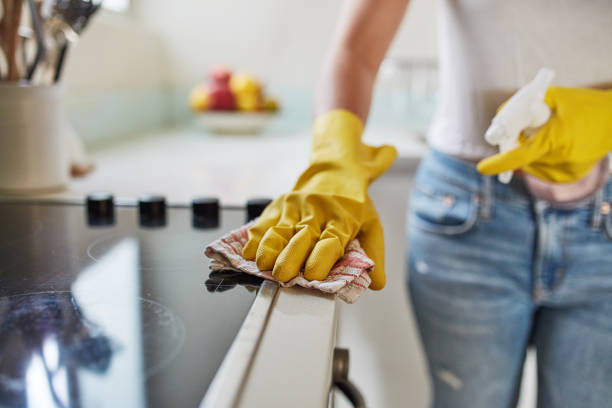Harmful bacteria is probably one of the last things you’d want on your plate. Here are some tips to keep them off your food – and out of your body.
By Carly Berglund

Prep Before You Get Cooking
One of the most important things to avoid while cooking is the cross-contamination of bacteria between raw proteins and other foods. One way to do this is to start every meal by pulling every ingredient you’ll need out of your fridge and pantry, said Mary Matthews, corporate chef at Way Cool Cooking School in Eden Prairie, Minn.
If you start by putting all of your ingredients out, then you won’t be left grabbing things at the last minute with contaminated hands or utensils. And, this way you can clean as you go and have everything put away by the time you’ve added the last of your ingredients.
“The better prepped you are to make a meal, the easier it is to keep your kitchen and your food clean,” Matthews said.
Aubrie Bombchill, a senior at the University of Minnesota, struggled with proper cleanup until she adopted the clean-as-you-go mindset.
“I would spend so much time cooking that I’d be exhausted once it was time to clean my kitchen,” Bombchill said. “I would leave ingredients out for too long, and it was really overwhelming.”
Perishable foods left out of the fridge longer than two hours may be unsafe to consume because of bacteria growth that occurs once foods reach 40 degrees Fahrenheit, according to the U.S. Department of Agriculture.
Use Multiple Cutting Boards
You should keep your raw protein as far away from other ingredients as possible, according to Matthews. Raw proteins, such as chicken or beef, can contain illness-causing bacteria that transfer to all surfaces it touches.
To kill bacteria, meat needs to be cooked to a safe internal temperature.
Until then, keep raw protein separate from other dishes and ingredients. Using multiple cutting boards, knives and other utensils will keep cross-contamination to a minimum, Matthews said.
Wash, wash, wash!
Start by washing your hands with soap and water.
“Washing your hands with soap and water is, absolutely, the number one way to avoid cross-contamination,” Matthews said. “Only rinsing your hands with water is not enough. You need the soap.”
Also, wash all your fruits and vegetables, Matthews said. Use cool water, and add some white vinegar for extra disinfecting.